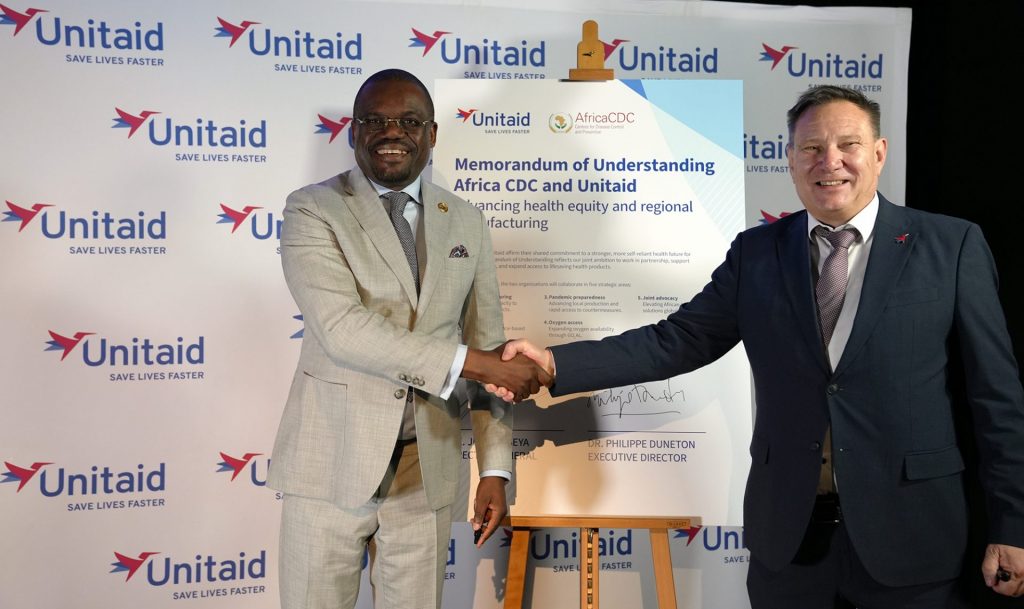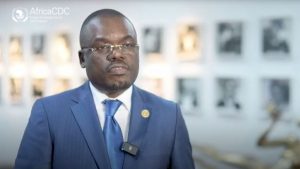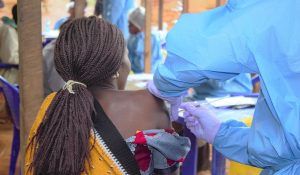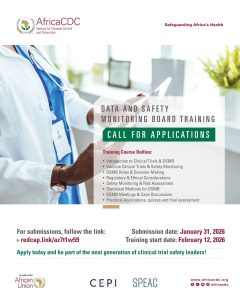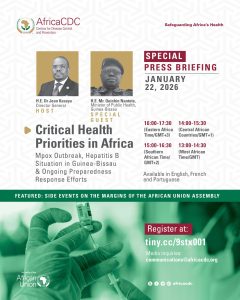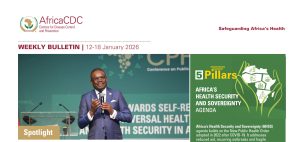Geneva/Addis Ababa – The Africa Centres for Disease Control and Prevention (Africa CDC) and Unitaid have formed a new strategic partnership to expand the production of essential health products in Africa and improve sustainable access to medicines, diagnostics, and medical oxygen across the continent.
Signed on the margins of the 78th World Health Assembly, the Memorandum of Understanding focuses on scaling up regional manufacturing as a central pillar of Africa’s health security and autonomy.
Africa bears 25% of the global disease burden yet imports more than 95% of the active pharmaceutical ingredients and 70% of the medicines it consumes. The continent has just 600 health product manufacturing sites for a population of 1.1 billion – compared to about 10,000 in India and 5,000 in China.
To help address these gaps and bolster Africa’s ability to respond to future pandemics, the partnership will support regional manufacturing of essential medical products such as diagnostics, therapeutics, and oxygen, while also building capacity to produce priority health products and scale up innovative technologies – including those developed in Africa.
These efforts will target key health priorities such as HIV, tuberculosis, malaria, hepatitis, cervical cancer, sexually transmitted infections, and other diseases and conditions – particularly those affecting women and children.
“This partnership reflects Africa’s goals to develop and produce health products that people across the continent need while building a resilient future,” said Dr Jean Kaseya, Director-General of Africa CDC. “Together with Unitaid, we are building on African expertise, expanding our regional manufacturing capacity, and strengthening our ability to produce essential health products reliably, affordably, and closer to where they are needed.”
Through this agreement, the two institutions will coordinate efforts to overcome regulatory, financing, and market challenges that hold back regional production. The collaboration also aims to improve pandemic preparedness by supporting the development and availability of health tools that are designed, produced, and delivered within Africa.
“Africa CDC and Unitaid share the same goal – to reinforce African capacity so the continent can sustainably respond to endemic diseases and regional health challenges,” said Dr. Philippe Duneton, Executive Director of Unitaid. “By expanding regional production, we can help reduce supply chain risks, and ensure faster, more
equitable access to lifesaving products while investing in industry development in the region.” The joint work will be guided by a shared action plan and regular progress reviews to ensure sustained momentum and accountability. Areas of collaboration will include supporting innovation in diagnostics, treatments, and medical technologies; strengthening regulatory and procurement pathways for locally produced health products; expanding access to medical oxygen; enhancing pandemic preparedness and response; and advancing joint advocacy for African-led solutions at both regional and global levels.
###
About: Africa Centres for Disease Control and Prevention (Africa CDC)
The Africa Centres for Disease Control and Prevention (Africa CDC) is a public health agency of the African Union. It is autonomous and supports member states in strengthening health systems. It also helps improve disease surveillance, emergency response, and disease control. Learn more at: https://africacdc.org and connect with us on LinkedIn, Twitter, Facebook and YouTube
About Unitaid
Unitaid is a global health organisation that saves lives by making new health products available and affordable for people in low- and middle-income countries. It works with partners to identify innovative treatments, tests and tools, help tackle the market barriers that are holding them back and get them to the people who need them most – fast. Since Unitaid was created in 2006, the organisation has unlocked access to more than 100 groundbreaking health products to help address the world’s biggest health challenges, including HIV, TB and malaria, women’s and children’s health, and pandemic prevention, preparedness and response. Every year, more than 300 million people benefit from the products Unitaid has helped roll out. Unitaid is hosted by the World Health Organisation.
For more information and media inquiries:
Margaret Edwin | Director of Communication and Public Information | Africa CDC EdwinM@africacdc.org

